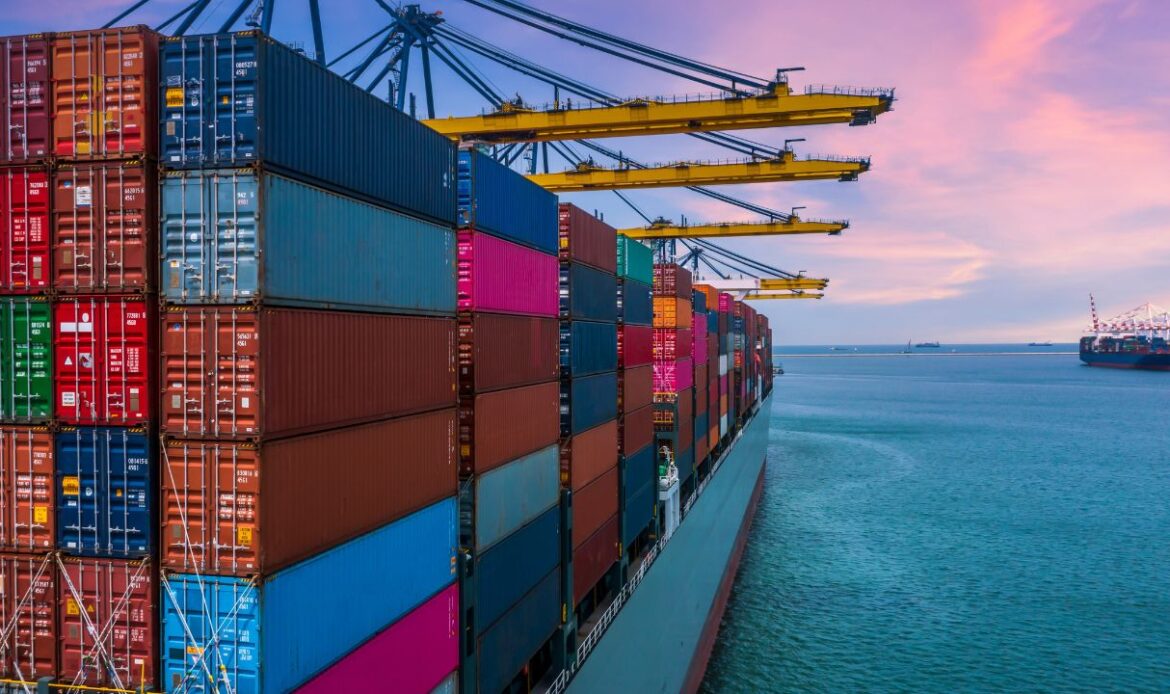
Shipping goods internationally requires expert planning and a clear understanding of costs. If you’re planning to move or ship goods to the UAE, it’s important to understand container charges from India to Dubai.
This guide explains the main factors that affect shipping costs, the options available, and tips to save money while keeping the process smooth.
By the end of this blog, you’ll have all the information you need to assess your shipping needs and choose the most cost-effective solution.
What Are Container Charges?
Container charges are the costs associated with shipping goods via containers, either through ocean freight or air freight shipments. These charges depend on factors like the shipping method, distance, cargo weight, and extra services like special handling or door-to-door delivery.
When shipping from India to Dubai, container charges are influenced by the type of shipping (sea freight vs. air), the container size, and the destination logistics, most commonly arriving at Jebel Ali, one of the busiest ports in Dubai.
Understanding these charges helps budget appropriately for your shipment, avoid surprises during customs clearance, and streamline the entire shipping process.
Factors Affecting Container Charges from India to Dubai
1. Shipping Method (Sea Freight vs. Air Freight)
The two primary shipping methods—sea freight and air freight—each have unique costs and benefits.
- Sea Freight:
Often the cheaper option, ideal for heavy or bulky goods. A 20-foot or 40-foot container can hold large quantities, making it cost-effective when shipping in bulk from India to Dubai. Transit times are longer, typically ranging from 7 to 14 days.
- Air Freight:
Faster but more expensive, air freight shipments are better suited for smaller shipments or time-sensitive goods. The shipping costs here are generally higher due to speed and convenience.
2. Transit Time
The time taken for goods to be shipped from India to Dubai directly affects costs. Faster transit options, such as air freight, incur higher charges compared to longer transit times experienced with sea freight.
- Ocean Freight: Transit to Jebel Ali port usually takes about one to two weeks.
- Air Freight: Shipments can reach Dubai or Abu Dhabi in as little as one to two days.
3. Container Size and Weight
Container charges also depend on the size and weight of the goods. Standard options include 20-foot and 40-foot containers. Heavier shipments may incur additional freight shipping costs due to fuel surcharges or weight-based pricing.
4. Customs Clearance and Taxes
Dubai has stringent customs regulations. Charges for customs clearance and import duties can vary based on the type of goods being shipped. Ensuring proper documentation minimizes delays and avoids unexpected costs.
5. Special Handling Requirements
Some goods require additional care, such as refrigeration, fragile handling, or oversized cargo accommodations. These requirements can significantly increase container charges.
6. Shipping Distance and Final Destination
The distance from India to the delivery location in Dubai or Abu Dhabi affects the cost. Door-to-door delivery may include extra charges for final delivery.
7. Peak Seasons and Demand Fluctuations
Higher demand during certain times of the year can drive up international shipping costs. For example, festival seasons in India or global holidays may result in increased charges due to higher cargo volumes.
Shipping Options for India to Dubai Shipments
When planning a shipment, selecting the right shipping options is a critical decision. Here are some of the most common methods:
1. Full Container Load (FCL)
FCL is ideal when you fully occupy a container. This is most cost-effective for businesses or individuals shipping high volumes.
2. Less Than Container Load (LCL)
For smaller shipments, LCL allows you to share container space with others. While shared costs are advantageous, transit times may be slightly longer due to consolidation at ports.
3. Air Freight Shipments
If time is of the essence, air freight is the fastest way to ship cargo from India to Dubai. Although it costs more, it is preferred for small to mid-sized shipments.
4. Door-to-Door Shipping
This comprehensive option covers pickup in India, transit, customs clearance, and delivery in Dubai. While more expensive, it offers peace of mind, especially for first-time shippers.
5. Specialized Services
For goods requiring special handling, such as perishable items, fragile goods, or oversized shipments, customized options are available to ensure your cargo arrives safely.
6. Regional Shipping Hubs
Choose between major UAE hubs like Jebel Ali or Abu Dhabi, depending on your cargo destination. This decision might affect transit times and final delivery costs.
Tips to Save on Container Charges from India to Dubai
Shipping expenses can add up quickly, but these tips can help you minimize costs while ensuring efficient delivery:
1. Consolidate Shipments
Instead of multiple small shipments, consider consolidating them into fewer FCL or LCL shipments. This can reduce overall costs, especially with sea freight.
2. Compare Shipping Options
Request quotes for both air freight and ocean freight to gauge which option suits your budget and timelines better.
3. Plan Ahead
Booking your shipments well in advance helps secure better rates, especially during peak seasons when demand is high.
4. Use Standard Containers
Opting for standard container sizes (20-foot or 40-foot) avoids additional surcharges for custom-sized containers.
5. Verify Customs Documentation
Ensure all paperwork, such as invoices and product descriptions, complies with customs regulations to avoid fines or delays.
6. Opt for Door-to-Door Service
Door-to-door service may cost more at first, but it can save money by simplifying logistics and avoiding delays.
7. Be Flexible with Transit Times
If your shipment isn’t time-sensitive, opt for longer transit times via sea freight to save on costs.
8. Choose Optimal Shipping Hubs
Pay attention to the destination port—Jebel Ali and Abu Dhabi are the two most convenient hubs for receiving goods from India.
9. Review Special Handling Needs
If possible, minimize requirements for special handling to avoid additional fees.
10. Negotiate Rates
Engage directly with freight forwarders to negotiate the best possible rates for high-volume shipments.
Why Choose the Right Shipping Partner?
Working with a reliable shipping partner can make all the difference when managing container charges from India to Dubai. Experienced logistics providers can simplify the process, from choosing the optimal shipping method to ensuring seamless customs clearance. By taking the guesswork out of international shipping, a good partner saves time, energy, and money.
Universal Relocations is a trusted provider of international shipping services, ensuring that your goods are delivered safely and efficiently while keeping costs under control.
Final Thoughts
Shipping goods internationally, especially from India to Dubai, can feel overwhelming at first. However, understanding key factors like shipping methods, transit times, and associated costs ensures a smooth process. Whether you need cost-effective sea freight options or expedited air freight shipments, there are solutions to meet every need.
With proper planning, you can manage container charges efficiently and ensure on-time delivery, whether to Jebel Ali, Abu Dhabi, or anywhere else in the UAE.
Looking for expert end-to-end shipping solutions? Visit Universal Relocations to get started! Get comprehensive shipping options tailored to your needs and simplify your international shipping experience today.

 800-13-7356
800-13-7356
